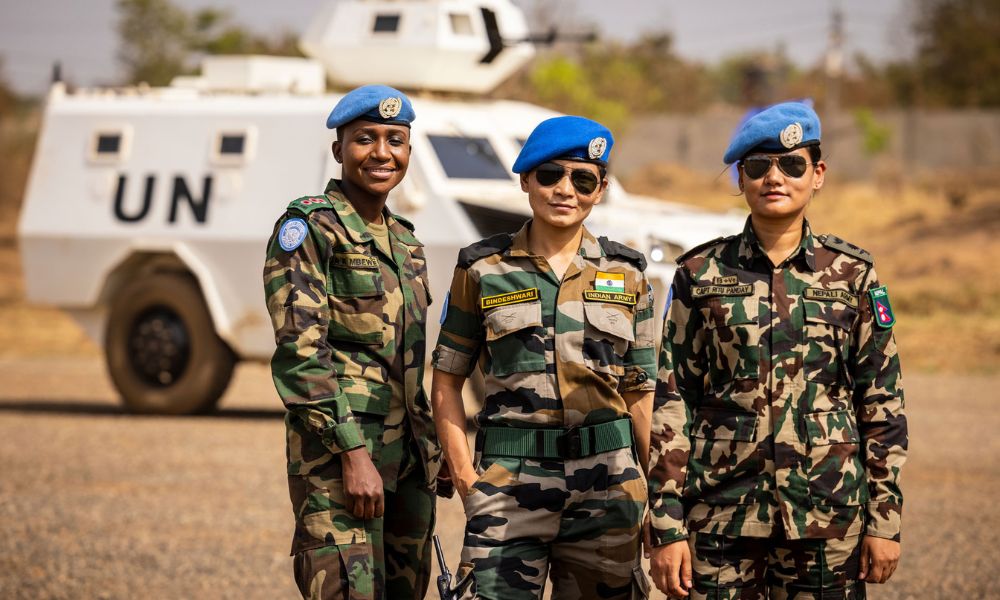
In a world marred by conflicts, geopolitical tensions, and complex global challenges, the United Nations (UN) plays a pivotal role in striving to maintain world peace. Founded in the aftermath of World War II with the primary mission of preventing conflicts and promoting international cooperation, the UN has, over the decades, confronted numerous challenges in its quest for global peace. This blog delves into the key challenges the UN faces in fulfilling its mandate and explores the complexities of maintaining world peace in the 21st century.
| Are you a Tax Lawyer in USA? 👉Transform Your Brand: Click for Metamorphosis👈 |
One of the most glaring challenges to the UN's peacekeeping efforts is the deep-seated geopolitical divisions among its member states. The United Nations Security Council (UNSC), responsible for maintaining international peace and security, is often plagued by the veto power held by its five permanent members—the United States, Russia, China, France, and the United Kingdom (the P5). These divisions can paralyze the UNSC, preventing it from taking decisive action to address global crises.
Modern conflicts often involve non-state actors, terrorist organizations, and proxy wars fueled by regional and international powers. These dynamics make it challenging for traditional conflict resolution methods employed by the UN to be effective. The rise of extremist groups like ISIS and ongoing proxy conflicts, such as the one in Yemen, underscore this challenge.
The UN frequently grapples with humanitarian crises stemming from conflicts, natural disasters, and other emergencies. Providing aid to those in need and ensuring the protection of civilians in conflict zones are daunting tasks, especially when access is restricted or when parties to the conflict disregard humanitarian norms. The Syrian refugee crisis and the Yemeni humanitarian catastrophe serve as stark examples.
The UN relies on contributions from member states for its peacekeeping missions and humanitarian efforts. Funding shortfalls can limit its ability to respond adequately to security threats and humanitarian crises. Maintaining a steady stream of financial support from member states is an ongoing challenge.
The erosion of international norms and the resurgence of nationalism in some countries pose a significant challenge to the UN's efforts to maintain world peace. When powerful states flout international law and norms, it weakens the authority of the UN and undermines its ability to enforce global rules.
The UN must contend with emerging asymmetric threats, including cyber warfare, disinformation campaigns, and bioterrorism. These threats blur the lines between traditional military conflicts and non-military actions, making it difficult to respond effectively and adapt to rapidly changing circumstances.
Climate change and resource scarcity are increasingly recognized as potential drivers of conflicts. Competition for dwindling resources, such as water and arable land, can lead to tensions and instability. The UN must address these environmental challenges as they intersect with its peacekeeping and conflict prevention efforts.
The UN faces internal challenges as well, including the need for reform to make its institutions more efficient and representative of the contemporary global power balance. Adapting to new technologies and enhancing coordination among various UN agencies is crucial for responding effectively to modern security threats.
The challenges facing the United Nations in maintaining world peace are complex and multifaceted. While the UN has been instrumental in preventing large-scale conflicts and promoting peace, the evolving nature of security threats demands continuous adaptation and reform. The international community must work together to address the geopolitical divisions, non-state actors, humanitarian crises, resource constraints, and other challenges that test the UN's ability to fulfill its mandate. Despite these formidable obstacles, the quest for global peace remains a shared responsibility, and the United Nations continues to play a central role in that endeavor.